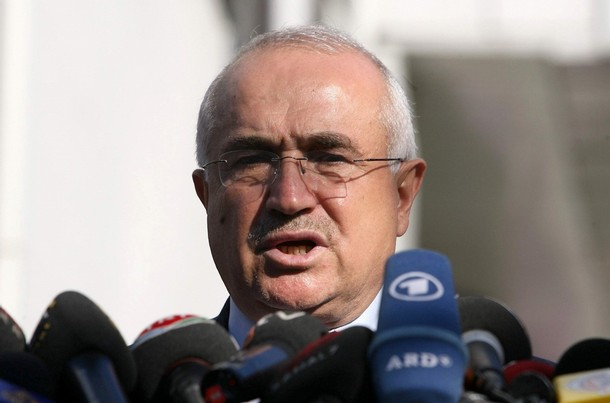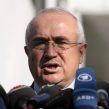
Ankara Establishing a “Paper Tiger to Address Terrorism
Publication: Eurasia Daily Monitor Volume: 6 Issue: 91
By:

Turkey has reorganized its counter-terrorist institutions in order to enhance its overall strategy, reflecting the changes within the international security climate. The Deputy Prime Minister Cemil Cicek revealed plans to establish a new organization responsible for implementing an effective counter terrorism strategy. This organization will be headed by an undersecretary of the interior ministry. It is expected that the under secretary for counter-terrorism (USCT) will start functioning in June (ANKA, May 4).
The debates surrounding the formation of the new counter-terrorism unit are not new. It first emerged as a demand from the military for closer cooperation against terrorism. In October 2008 the government revealed that it was considering establishing new institutions (Yeni Safak, September 15).
It was originally planned that the new institutions would be established by upgrading the existing General Directorate of the Turkish National Police to the level of undersecretary within the interior ministry (Yeni Safak, December 9, 2008). However, internal resistance from the security bureaucracy on the issue of which institutions, including military, police or intelligence services, would become the dominant institution overseeing the USCT resulted in delays.
Reflecting the resistance from the military, the new institution will have no operational capability to either plan or conduct counter-terrorist operations. Thus, the USCT has been created to serve as a think-tank for the civil government. It is expected to coordinate the counter-terrorist activities of the other security agencies. Interior Minister Besir Atalay, revealed the details of the new institution. The USCT will analyze counter-terrorist operations and subsequently formulate new security policies. Under the USCT the new counter-terrorism committee will consist of the Deputy Chief of the General Staff, the commander of the gendarmerie, under secretaries from the interior and foreign ministries, as well as the heads of the Turkish National Police, National Intelligence Service and the coastguard (NTV, May 11).
The Turkish press has argued that the new institution will strengthen the position of the interior ministry because all intelligence agencies (Turkish National Police Intelligence Division, National Intelligence Service, and the Intelligence Division of the Gendarmerie) will initially share their intelligence with the new unit before it formulates counter-terrorist policies (Yeni Cag, May 12). The new unit will function as a think-thank capable of buying services from Turkish and foreign experts (Cihan News Agency, May 5).
As the government has established the new institution under the interior ministry, rather than the defense ministry, political observers consider that this transfers the responsibility for counter-terrorism strategy from the military to the civil government (Yeni Safak, December 9, 2008).
The Justice and Development Party (AKP) government expects this institution to act as the "brain" of its counter-terrorism policies. However, institutional rivalries and jealousy between the various security institutions might hamper the successful functioning of this new unit. For instance, recently the former Chief of the General Staff General Yasar Buyukanit, openly declared that he did not trust the police (Hurriyet, May 4). The current Chief of the General Staff General Ilker Basbug, indicated that the police may bury some weapons found by the prosecutors of the Ergenekon investigation (Milliyet, April 30). Turkey’s police, on the other hand, could not issue such open statement criticizing the military, though its attitudes toward the armed forces is equally negative.
Even within the same institutions, bureaucratic jealousy often hinders effective cooperation. For instance, senior bureaucrats within the police headquarters prefer to avoid inviting internationally recognized professors from the Turkish National Police University for internal training.
Under these circumstances it would be optimistic to believe that the USCT will function as planned. On May 12 terrorism experts within different security institutions told Jamestown that the USCT will not function as an effective institution -rather the government is establishing yet another paper tiger. In addition, one of the major weaknesses of the proposed plan is the lack of an international perspective. Given that terrorism is an international phenomenon, which requires better trans-border cooperation, it is surprising that this dimension is missing.
It seems that the USCT may function as a notary institution that verifies the civil government’s counter-terrorism policies, presenting them as an agreed strategy between the relevant state bodies. Of course, the civil government requires proposals to present as part of a plan that all bureaucratic institutions can agree upon. Moreover, it remains unclear whether the untested USCT will be used effectively by the AKP government to meet the challenges of the terrorist threats confronting Turkey.




